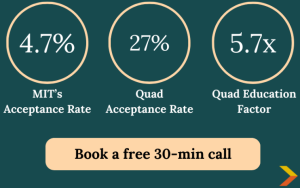The path to becoming a neurosurgeon is steep and rewarding in the very gruelling field of medicine. The need of the hour is a minimum of 14 years to be neurosurgeon (undergraduate doctors spend around ten yrs at college and university before becoming qualified, medical students between five mins - medication degree- starts with fifteen months internship). In this article, we examine the exact timeline and educational milestones you need to hit in order to become a neurosurgeon.
Undergraduate Degree
Duration: 4 years
The journey to a career in neurosurgery starts with earning an undergraduate degree. So most future neurosurgeons are on a pre-medical track, which means these students take lots of science courses like biology and chemistry (and physics) that medical schools require. This early exposure will strongly influence your performance on medical school entrance exams and in the first couple of years (especially during preclinical semesters when you have classes such as biochem, cell biology etc.)
Medical School
Duration: 4 years
The next step is medical school, which takes four years following completion of an undergraduate degree. The syllabus is divided into two main parts:
Preclinical Years (1-2) - Classroom/laboratory work in basic medical sciences
Q3-Q4: Clinical Years (Dx/tx/H&P thus far): Introduction to rotations throughout various medical specialties, including surgery and a Neurology-specific rotation allowing for hands-on clinical care under supervision.
Residency Program
Duration: 7 years
All surgeons start their career in general surgery, then get specific training for whatever specialty they are going into but with neurosurgeons this specialized post-graduate education comes through a residency program. Neurosurgery residency is one of the toughest and lengthiest amongst all residencies in medicine it is thought to rank as high, perhaps even higher than general surgery. While the program does not allow and even forbids all things *Grey's Anatomy* emotional between faculty and residents, educationally each designated resident is a true mentee for every staff member in this center of academic excellence during this time (diagnosis to postop visit).

Fellowship (Optional)
Duration: 1-2 years
Although not required, most neurosurgeons choose to subspecialize by further training in a fellowship. Such programs can offer added education in subspecialties like pediatric neurosurgery, spine surgery or functional neurosurgery. Fellowships give you an opportunity to dive deeper and may also mean that you are somewhat of a lead researcher in your chosen sub-field.
Board Certification
Neurosurgeons must complete a residency which is anywhere from 5 to more years and pass their board exams with the American Board of Neurological Surgery. This certification is essential for practicing independently and confirms that the surgeon fulfills all quality standards to be fulfilling a task of neurosurgery.
Cumulative Education and Training Timeline
In total, it usually takes 15-17 years following high school to become a fully trained and board-certified neurosurgeon. This timeline includes:
Undergraduate degree of at least 4 years
4 years of medical school.
The process takes 7 years for neurosurgery.
Fellowship (1- 2 years) Optional
Conclusion
The roadmap to becoming a neurosurgeon is long and grueling, but it correlates with the amount of skill needed in this field. It is a long path to becoming a neurosurgeon, one that starts with an undergraduate degree ( preferably in the sciences), moves on through medical school and finally to specialized residency training.
If you are a student who is planning to enter the prestigious program, but then need help with In addition information about acceptance rate of MIT One of the top rated college for science and medical education. Comprehension of the acceptance rates and academic expectations from top-ranked universities can offer prospective medical students a wealth of information that they need for their educational planning.
